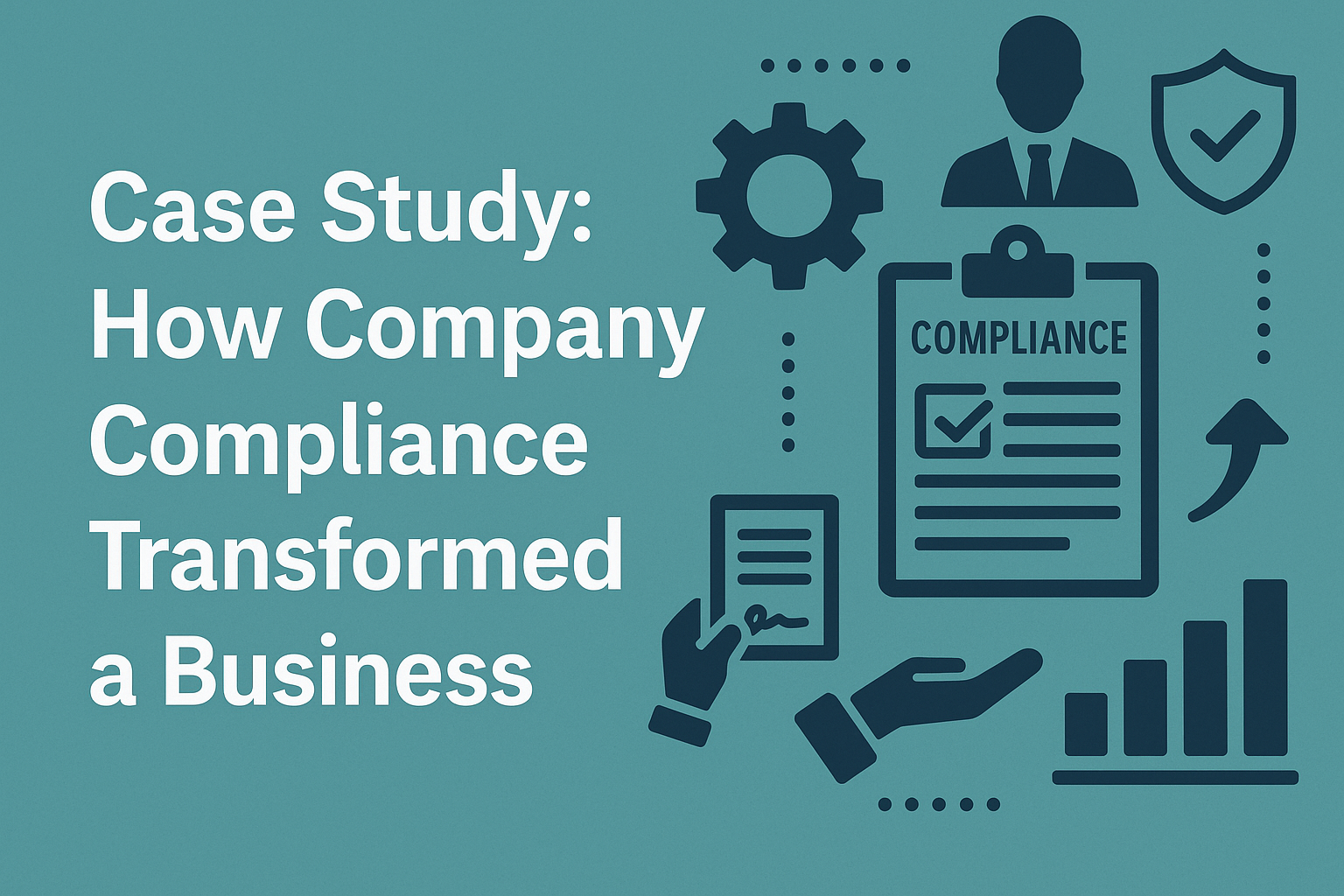Case Study: How Company Compliance Transformed a Business
In today’s highly regulated and reputation-driven environment, company compliance is more than just a legal requirement — it’s a growth enabler. While many small businesses and startups view compliance as a burden, this case study reveals how embracing it can actually unlock new opportunities, improve brand credibility, and streamline operations.
Let’s explore how one business went from struggling with inconsistent processes to becoming a trusted, scalable, and investor-ready enterprise — all through the power of structured compliance.
🏢 Background: The Business at a Glance
Company: FinSage Solutions Pvt. Ltd.
Industry: Financial Advisory & WealthTech
Founded: 2019
Location: Bengaluru, India
Initial Status: Sole Proprietorship with basic GST registration
Employees: 5
The Challenge:
As FinSage began acquiring more B2B clients and exploring external funding, they faced several bottlenecks:
-
Lack of formal company structure
-
No financial audits or annual filings
-
Ineligibility for government schemes or institutional partnerships
-
Investor reluctance due to unstructured operations
🚨 The Turning Point: Why They Opted for Compliance
In late 2022, FinSage lost a major corporate client because it couldn’t provide a certificate of incorporation, annual financials, or statutory audit reports — documents commonly required during vendor onboarding.
This incident became a wake-up call for the founder.
🔄 The Transformation Journey
✅ Step 1: Private Limited Company Registration
With expert help, FinSage converted from a sole proprietorship to a Private Limited Company under the Companies Act, 2013. This provided:
-
A distinct legal identity
-
Limited liability protection
-
A proper shareholding and governance structure
✅ Step 2: ROC Filings and Financial Compliance
They implemented:
-
Proper bookkeeping with monthly reconciliation
-
Annual ROC filings (MGT-7 & AOC-4)
-
Director reports and shareholder resolutions
-
Appointment of a statutory auditor
✅ Step 3: Tax and Regulatory Alignment
-
GST returns, TDS filings, and PF/ESI compliance were brought on track
-
Applied for Startup India recognition and MSME certification
-
Introduced a data protection and privacy policy for digital operations
📈 The Impact: Measurable Business Growth
| Metric | Before Compliance | After Compliance (12 months) |
|---|---|---|
| Client Onboarding Time | 3–4 weeks | 5–7 days |
| Investor Inquiries | 0 | 4 VC pitches completed |
| Revenue Growth | ₹18 Lakhs annually | ₹55 Lakhs annually |
| New Corporate Clients | 1 | 6+ (including 2 listed firms) |
| Legal Notices / Penalties | 2 in 2022 | 0 in 2023 |
| Business Loan Eligibility | Not eligible | Approved ₹15 Lakhs MSME loan |
🧠 Key Learnings from the Case
1. Compliance Builds Credibility
When dealing with banks, government bodies, or corporate clients, compliance signals reliability, reducing friction in approvals or partnerships.
2. Structured Operations Attract Investment
The introduction of a clear cap table, governance model, and audited financials allowed the company to pitch to investors confidently.
3. Compliance is Scalable
By digitizing their filings, using accounting software, and maintaining updated records, FinSage was able to grow without administrative bottlenecks.
4. Eligibility for Incentives
With their Startup India and MSME registrations, they became eligible for tax exemptions, discounted software tools, and public procurement contracts.
🔚 Conclusion
This case study demonstrates that compliance is not a cost — it’s an investment. For FinSage Solutions, compliance helped rebuild their brand, opened new markets, and laid the foundation for long-term success.
Compliance didn’t just transform their paperwork — it transformed their future.
